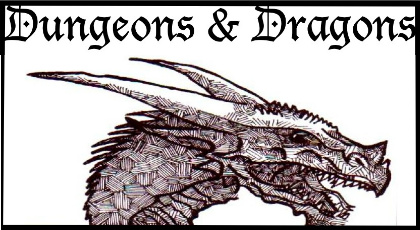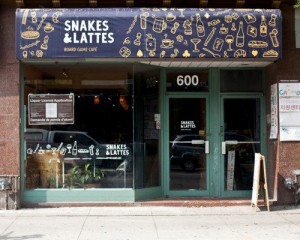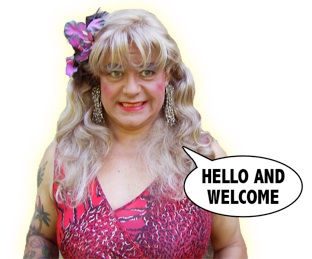Date: 2011 July

Image Courtesy of Natural Resources Canada
Momentum grows for nation-wide performances of Homegrown by all theatre organizations that receive federal funding in protest of Summerworks Festival being defunded by Federal Government
by Michael Wheeler
Last week saw freedom of speech and federal support for the arts come under unprecedented attack by the Harper Government when the Summerworks Festival had its Heritage Department funding pulled with no information given as to why.
This follows a series of co-ordinated attacks on the festival by SUN Media and even The Prime Minister himself, some of which I wrote about last August, when the performance of the play Homegrown by Catherine Frid, about a lawyer’s relationship with a man convicted of terrorism, was being used as a smokescreen to deflect attention from public outrage over the discontinuation of the long-form census.
Last week, Finance Minister Jim Flaherty followed up the Summerworks announcement with this statement:
“One thing I’d say, and maybe it’s different than it used to be, is we actually don’t believe in festivals and cultural institutions assuming that year after year after year they’ll receive government funding. They ought not assume entitlement to grants … no organization should assume in their budgeting that every year the government of Canada is going to give them grants because there’s lots of competition, lots of other festivals, and there are new ideas that come along. So it’s a good idea for everyone to stay on their toes and not make that assumption.”
While it may seem reasonable to suggest that arts organizations shouldn’t simply expect automatic renewal of funding, there is no argument to be made for this kind of cut to an organization with a strong record of meeting and exceeding its mandate, announcing consecutive years of record-breaking attendance and growth.
The cumulative message behind the Summerworks axe and the statement by the Finance Minister could not be more clear:
If you create work that critiques the Harper Government – we will take away your funding.
So begins what will likely be a challenging era for cultural institutions that are committed to making groundbreaking work which may (gasp) challenge the dominant value system – or just aren’t interested in being propagandists for a mean-spirited regime designed to respond to the commands of a leader who cannot tolerate criticism. When L’Etat C’est Moi is the rule of the day – and Moi has a big problem with people putting on plays about ideas he doesn’t agree with – Houston We Have A Problem.
Of course the argument is being presented that this is freeing up funds to support new ideas – but anyone who knows anything about the way the cultural ecosystem functions knows this is complete hogwash: Stripping Summerworks of $43,000 in funding to free up $500,000 for The Walk of Fame Festival is like declaring yourself pro-Rain, but anti-Cloud.
Even if we accept for a moment that promoting already famous people like Alex Trebek is a good idea that needs support from taxpayer dollars, how on earth do they imagine artists on very rare occasions become famous? They struggle to hone their craft in festivals devoted to groundbreaking work just like Summerworks, which has an extraordinary record as the birthplace for a number of the most exciting new works in Canadian performance. Last year’s Summerworks hit, Ride The Cyclone, recently announced an off-Broadway deal as a direct result of participating in Summerworks.

After traveling from Victoria BC to Toronto to participate in the National Series at Summerworks, Atomic Vaudeville's 'Ride The Cyclone' get a chance to take their show to NYC.
Almost none of the artists involved in Summerworks will be paid a living wage. Practically everyone doing a Summerworks show is working a second/third job and knows the best they can hope for financially is a small honorarium and that the show will go on to have a greater life after the festival. Everyone participating does it anyhow – because they know that Summerworks is an important place for new contemporary performance in Canada.
All of this is to say giving Summerworks the axe is an extremely poor approach to public policy and the cultural equivalent of poisoning the well.
The immediate impact of this politically motivated intervention in cultural policy is that ticket prices will go up and the marketing budget will go down. All tickets, including for the Praxis Theatre/The Original Norwegian Co-Pro, You Should Have Stayed Home, are now going up by 50% to $15. ($10 + $5 FST*) *Free Speech Tax. Summerworks is also in the midst of a grassroots fundraising campaign you can participate in here.
Canadian Actors Equity Association’s Executive Director Arden R. Ryshpan was the first member of the theatre community to respond to the situation with a statement released by CAEA last week:
“It is hard to interpret the Minister’s statement as anything but a threat and a potential ideological attack on the arts. I don’t recall seeing similar statements made about long-term government support to other industries such as forestry, fisheries or mining. Given that our industry is larger than all three of these sectors combined, we deserve better from our Government including meaningful consultation leading to thoughtful program change and development, if required. An off-the-cuff remark by a Minister alluding to substantial change of practice is shocking and imprudent.”
Artists across the country have also independently begun to respond positively and pro-actively to the situation. The Globe and Mail reports Western Edge Theatre in Nanaimo, B.C. will perform a public reading of Homegrown on July 15 with all proceeds going to The Summerworks Festival.
Multi Dora-winning Shaw and Tarragon playwright Michael Healey has sent out a call to action to all Artistic Directors of organizations that receive Federal arts funding to join Western Edge Theatre in performing a reading of the play, whether or not they participate in the fundraising initiative. Healey has offered to provide scripts and keep a list of participating companies so that the initiative can continue to gain momentum.
This is not the type of storm theat can be weathered by hoping they won’t come for you. Or if they do survive it that way – lets talk about how relevant the work those theatres end up putting on will be. Will Stephen Harper’s vision of Canada be the only art that forms partnerships with the government? The final sentence of Michael Healey’s message to AD’s of Canadian Theatres urging them to participate in a nationwide reading of Homegrown expresses best the necessity of a national response to this attack on Canadian culture:
“If you find yourself anxious about the potential ramifications for your own company’s federal funding as a consequence of taking part in this demonstration, I can think of no better reason for participating in it.”

by Aislinn Rose
This July 1st marked the first Canada Day in four years that I did not spend in a marathon rehearsal session for a Toronto Fringe production. And yet, I do have a Fringe show this year… it’s just that I can’t exactly rehearse for it.
What I can do is tell you what – and who – I will be putting in the basement of Snakes & Lattes and what they will be doing. What I can’t do is tell you what’s going to happen once everyone is there.
The premise started out simply enough: What happens when you put Dungeons & Dragons, a character-based role playing game, in front of an audience? Is it interesting? Does it become performative? How does the presence of an audience affect the playing of the game? And… how the heck do you play Dungeons & Dragons? I have no idea, and I want to find out.
Previously on this page we have described the project as “part performance experiment, part research project”. Well, as the idea developed, its inherent ‘liveness’ and unpredictability – the fact that the story is created on the spot through the collective imagination of its players – became very exciting, and I wanted to open up this experiment to other members of the theatre community.

Snakes & Lattes on Bloor (click to enlarge)
Enter Trevor Schwellnus and Lyon Smith, Dora-winning lighting and sound designers respectively. While lights and sound are usually fixed features in a theatrical presentation, with set levels and fade in and fade out times, Trevor and Lyon will be experimenting with creating live light and soundscapes for each of the stories as they develop. Trevor and Lyon are also D&D nerds from way back.
Over the course of the Fringe we’ll also get to see how different kinds of players and their different backgrounds affect the game, and what that will mean to their relationship with the audience.
Our first game on the 10th will be played by members of the theatre and improv community, all with a background in playing D&D. The team includes one of my Toronto improv favourites, Carmine Lucarelli, winner of a Canadian Comedy Award as part of the ensemble of Show Stopping Number: The Improvised Musical, as well as Scott Moyle, Artistic Director of Urban Bard Productions, and dramaturg Stephen Colella, among others.
The second game on the 14th will be made up entirely by members of Toronto’s gaming community. Big thanks go to Kate Bullock and the Toronto Area Gamers for fitting me out with players and our Dungeon Master.
Our third and final game on the 16th will see these two brands of nerd join forces for a final epic game. Don’t miss Praxis Theatre co-Artistic Director Michael Wheeler as he returns to his D&D roots, playing alongside award-winning playwright Nicholas Billon, and Dora-nominated actor (and everyone’s favourite guy) Colin Doyle. You can also catch Colin at this year’s Fringe in The Godot Cycle, and we thank them for not scheduling his performance during our game.
Finally, I’ve also invited visual artists of various aesthetic styles to join us in our adventures to live draw/sketch the scenes and characters as they develop. If you’re an artist, please don’t hesitate to bring your sketch pad with you.
Oh, and about our title? It’s possible Michael and I were being nerds of another kind that day. Hope to see you in the basement.
______________________________________________________________________

Image by Jody Hewston
Dungeons & Dragons (not) The Musical – Toronto Fringe Festival, 2011
Dates:
July 10th, 4pm to 10pm
July 14th, 7pm to 1am
July 16th, 5pm to 11pm
Venue:
Snakes & Lattes – 600 Bloor Street West.
Tickets:
Click Here to purchase, or here for more information.
*PLEASE NOTE: there is a maximum allowable attendance of 20 people at any one time; the box office will be located at the venue and will be open for the entire 6 hour performance time.

Jane hosts The Kitchen Party Nervous Breakdown - Everyone's favorite reality TV show.
by Sky Gilbert
Most people accept, in principle, the notion of colour blind casting. Colour blind casting is based on the idea that we are all the same – that there are not essential differences between people of different races. Most of us also agree with the goals of colour blind casting, in principle: to fight prejudice – and educate people about the false associations made between race and personality traits.
But where are we in terms of sexuality blind casting? I may be the only person interested in this topic. I was inspired to explore sexuality blind casting because of the homophobia I experienced as young actor in theatre school. My acting teachers at York were pretty insistent upon removing my feminine ‘mannerisms.’ When I left theatre school and came out of the closet many years later, I found that drag opened huge possibilities for me, really unlocking my acting talent. In contemporary movies and tv shows we do not see a lot of out gay actors. Oh yes there’s the gorgeous, straight acting Cheyenne Jackson of Glee fame. But unfortunately we can’t all be masculine and perfect looking — and some of us don’t even don’t want to be. Is there anything that could be done to challenge casting directors and theatre directors to hire gay men for straight roles?
What a stupid question. Gay men are hired all the time to play straight roles. But these are actors who don’t ‘appear’ to be gay – in other words masculine gay men. And here we come to the important question: is there a relationship between gay actors and femininity, or lesbian actors and masculinity? Colour blind casting works because black men are essentially the same as white men — only their skin colour is different. But maybe gay men are fundamentally different from straight men. Are all gay men feminine? No, but some are. And some straight men are effeminate also. The difference is that gay men often embrace their femininity and are comfortable with it; it’s part of their culture. They may let their guard down and act effeminately outside the audition, and even let a little bit of it seep into the audition by accident.
If an effeminate gay actor auditions to read for a straight masculine part, will he get it? Probably not.
Should he?

Daniel Sadavoy and Jen Neales in Episode 1: 'Something Popcorn This Way Comes'.
These are the kind of questions that The Nervous Breakdown Kitchen Party Reality TV show sets out to answer. The Kitchen Party is yearly youth project of my theatre company The Cabaret Company. It takes place in an actual kitchen. (For the past two years it has taken place in Moynan King’s kitchen in her studio apartment in Parkdale.) Approximately ten young queer actors (out and proud gay, lesbian, bisexual and transgendered people) are invited to perform, and are paid a small honorarium. Quite often they are graduates of Buddies Queer Youth Programme. The rehearsal and performance process takes about a week and the performance is filmed for the Kitchen Party website.
The principle behind the event is pretty simple. It’s a kitchen party and somebody is going to have a nervous breakdown. The young actors work in couples and improvise scenes based on difficult, conflicted queer relationships directed by myself and my assistant Andrew Cheng. During the party, the couples pair off, break away from the party and argue and then return — so we get to see each conflicted couple separately. Near the end I stand up and ask they audience to vote on which of the partygoers will be angry enough to have a fit. The audience votes. Then we finish and the audience finds out who ‘blows.’ When a small invited audience of artistic directors, directors, and casting directors attends this one-time performance, they are sitting in Moynan’s living room watching a party in the kitchen. The performance, which usually lasts about 45 minutes, and is followed by an informal chat over wine and cheese in which the young actors are able to meet their potential employers and talk about the issues raised by the play.
And what are the issues? These young actors are improvising their own scenes, and encouraged to bring details that come from their own lives and the lives of their friends: real queer detail. For instance, the conflicts are often about class, sometimes about race, sometimes about different notions of being ‘out of the closet,’ and sometimes about promiscuity or drugs. The actors are not playing themselves, but they bring their own mannerisms to their roles in the David Mamet school of performance. The David Mamet School (as I like to call it) is explained in his book True and False. Mamet’s theory holds that actors don’t need to ‘act’ in the sense of taking on a character mask. Instead they need only perform the lines taking care to follow the character’s intentions. But would this work for a gay effeminate actor playing a straight masculine role? Probably not. Mamet’s approach is, I would posit, heterosexist (as heterosexist as Mamet himself is) and assumes that men are masculine and women are feminine, and no one has anything to hide.

Click here to learn more about the Kitchen Party Reality TV Show
Well these young actors don’t have to hide anything at The Kitchen Party. And the directors and casting agents who attend are encouraged to open spaces for them in their casts and acting companies. This is a big issue –and like Rome — the solution won’t be built in a day. In fact it may never be solved until we change our current definitions of what it means to be a man or a woman.
When I went for my Ph.D. exam one of my examiners asked me: “What is a ‘man’?” It was a very good question. I said that there is a biological man, and this can be confirmed by checking for x and y chromosomes (I can never remember how many is proper) and of course by checking for the presence of a scrotum and penis. But that will only tell you whether or not it is a biological man. The rest of the notion of ‘dude’ is concocted from cultural stereotypes, many of which are present simply in that word ‘dude’. I like to think of myself as more of a ‘dudette’ (with a penis). Am I still a man? Are there parts I can play, that match my ‘parts.’ ?
It’s a question we are just beginning to think about at The Kitchen Party Nervous Breakdown Reality TV Show.










Recent Comments